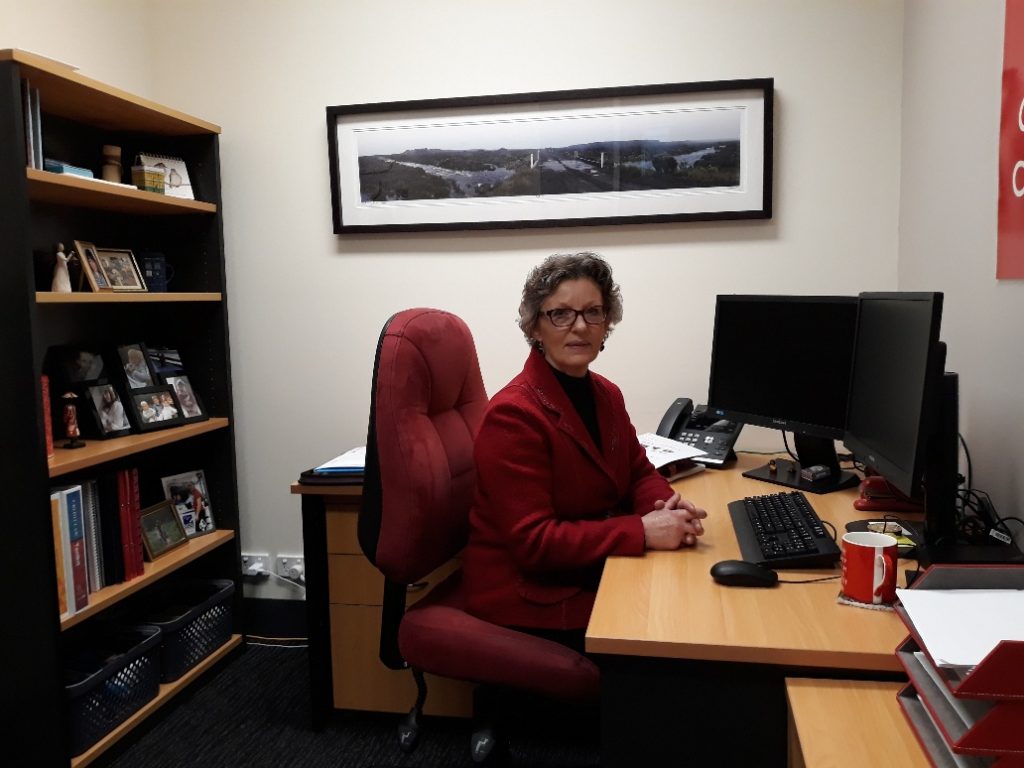How can I take back control of my finances?
September 30, 2020
It’s never too early – or too late – to take that vital first step toward taking back control of your finances. It may be easier than you think, and it’s likely to boost your mental health and wellbeing at the same time.
A complex picture of the financial impacts of COVID-19 on Tasmanians’ lives is currently emerging. Calls to the National Debt Helpline that Anglicare manages are down on figures from the same time last year. While this would normally be a positive trend, financial counsellors are concerned it represents the calm before the storm.
Lynne Watson from Anglicare’s financial counselling team attributes it to the coronavirus emergency packages rolled out by the State and Federal governments earlier this year.
“People who were already on income support had their payments boosted and this has been great for families who have been able to afford more than the absolute bare essentials, perhaps for the first time,” she said.
“People have also been able to access moratoriums on debts associated with mortgages and gas and electricity bills, while the Tasmanian Government’s rent relief packages have provided valuable protections for residential tenants.”
However, Lynne said these benefits haven’t flowed through to everyone.
“We’ve seen an increase in calls from international visa holders and international students who have lost employment and don’t have access to government payments,” she says. “International students may also have lost support from family or sponsors overseas due to the impact of COVID in their home country. Meanwhile, people who are on fixed aged and disability pensions are finding that food and other grocery staples have risen in price, putting additional pressures on the weekly budget.”
Lynne expects calls to the Helpline could increase sharply now that COVID-related supplements such as JobKeeper and JobSeeker have been reduced – and for a range of other reasons that have the potential to affect a broad group of people.
“As contract arrangements for utilities, mortgages and rent return to normal, many people will face increased payments and the possibility of disconnection and eviction,” she explains.
“We’re also concerned that pressure is building on people who have used their credit cards to pay for daily living expenses, or who have taken money out of their superannuation accounts or who own small businesses. No-one is immune to the economic impacts of COVID-19.”
Support is at hand
Anglicare is urging people to contact the National Debt Helpline immediately if they are experiencing hardship. It’s a free, independent and confidential service staffed by trained professionals who can provide up-to-date information about a range of financial matters from simple budgeting to more complex issues such as consumer law and bankruptcy.
“We will equip you with the information and skills you need to turn your financial situation around, and we can also refer you to other agencies if you would like us to,” says Lynne.
“Please come to us rather than fall deeper into the debt trap by taking out a payday loan.”
Anglicare’s financial counsellors are members of Financial Counselling Australia (FCA) and are excited about a new partnership between FCA and Beyond Blue.
“Money challenges make life difficult and the link between financial uncertainty and poor mental health is very real,” says Lynne Watson. “People say to us that they feel more hopeful after seeking support – and information is power!”
More information?
The National Debt Helpline: 1800 007 007
The Anglicare website has all the information you need on how Anglicare’s financial counselling service can support you.
PHOTO:
Anglicare Program Manager Lynne Watson encourages people to call the National Debt Helpline if they are feeling overwhelmed by money matters.

